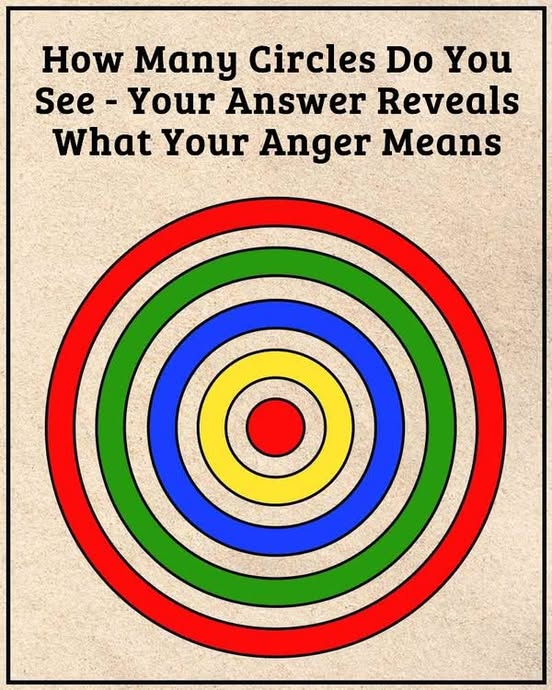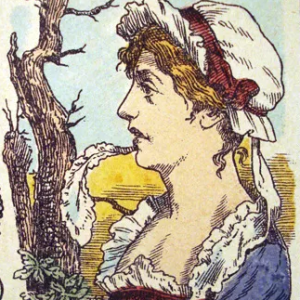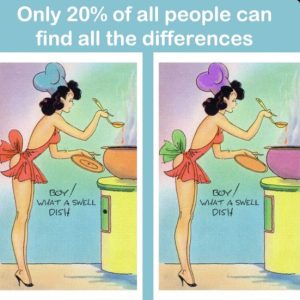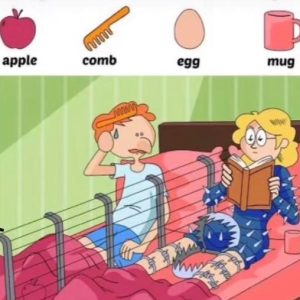You’ve been there. You’re mindlessly scrolling when suddenly—bam! A post grabs you:
“How Many Circles You See Reveals If You’re a Narcissist!”
Your heart skips. Your eyes dart over the image. Four circles? Twelve? Twenty?
And before you know it, you’re not just counting—you’re questioning your entire personality.
What started as a simple optical illusion quickly turns into a deep dive into your psyche. But is there any truth behind it? Let’s break it down.

Why We’re So Obsessed With Viral Optical Illusions
First, let’s be real: we love stuff like this.
Personality quizzes, astrology memes, “pick a door” tests—they’re everywhere for a reason.
In a world moving at lightning speed, we crave quick insights into ourselves. We want to understand why we do what we do, why we feel what we feel, and honestly—how others see us.
Optical illusions add an extra layer. They seem objective. It’s not just a feelin
Video: Optical Illusion Personality Test Shows How Rare You Are
The Science Behind the Circle Illusion
This particular “circle test” falls under what psychologists call a cognitive illusion.
Cognitive illusions don’t just trick your eyes—they mess with your brain’s interpretation of reality.
When you look at the image full of swirling circles, your brain tries to make sense of it quickly.
Some people might spot six circles instantly. Others might pick out twelve or more.
Neither group is “wrong”—it simply reflects how differently our minds process the same information.
The meme’s claim goes like this:
- Fewer circles seen = Self-focus, possible narcissistic tendencies
- More circles spotted = Open-mindedness, empathy, attention to detail
Sounds juicy, right?
Here’s the plot twist:
There’s no actual scientific study backing this specific claim.
Still, that doesn’t mean your reaction to the test is meaningless.
Is There Really a Link Between Narcissism and How Many Circles You See?

Let’s set the record straight. Narcissism isn’t just “loving selfies” or “posting too many gym pics.”
It’s a complex trait tied to how a person sees themselves, regulates their emotions, and relates to others.
And while one viral picture isn’t going to diagnose anyone, how you react to the test can reveal something interesting.
Ask yourself:
- Did you feel defensive?
- Did you laugh it off?
- Were you quick to share it—or quietly skeptical?
These emotional responses say more about your self-awareness than the number of circles ever could.
At its core, narcissism has more to do with needing validation and admiration than missing a few hidden circles.
What This Test Really Teaches Us
Spoiler alert:
It’s not about the circles.
It’s about curiosity.
It’s about reflection.
It’s about pausing—even for just a second—to wonder, “What does this say about me?”
And that? That’s beautiful.
That’s the complete opposite of narcissism.
Because narcissists aren’t curious about how others perceive them—they’re obsessed with being right.
Pausing, questioning, and self-reflecting shows emotional maturity, not vanity.
The Deeper Meaning Behind These Viral Tests
These quick quizzes and illusions do something powerful: they invite us to look inward.
Even if the “science” is shaky, the instinct they trigger—curiosity about who we are—is real.
In a noisy world, where everyone is yelling to be heard, the act of quietly reflecting—even about something silly—is revolutionary.
It says:
“I’m willing to learn about myself.”
“I’m open to growth.”
“I know I’m not perfect, and that’s okay.”
Conclusion: It’s Never About the Circles—It’s About the Curiosity
Video: 15 Mind Blowing Optical illusions and Strange Visual Phenomena
Most people will scroll right past an image like this without a second thought.
But the ones who stop, who wonder, who pause—that’s where the magic happens.
It’s not about how many circles you counted.
It’s about asking questions.
It’s about understanding that seeing fewer or more doesn’t define your worth.
In the end, curiosity—not narcissism—is what separates those who truly grow from those who stay stuck.
So the next time you stumble across a viral test promising to “reveal everything about you,” smile.
Take a moment.
Be curious—but never let a meme define your soul.
Because you, my friend, are far more complex, beautiful, and fascinating than any optical illusion could ever capture.


